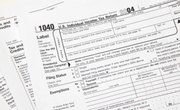
The state of California usually taxes retirement income at regular income tax rates. So, taxes apply if you reside in the state or if you have an income source based within the state. And that includes any annuity you may have. However, Social Security benefits are not taxable in California.
Other forms of retirement income that you will need to pay taxes on in California include IRAs, 401(k)s and pensions, among others. And it doesn’t matter whether your plans are military, private or government in nature – you must pay taxes in some form.
What Is An Annuity?
An annuity is an insurance product that will regularly pay you a set amount of money immediately or in the future. An annuity that pays out in the future is called a deferred annuity. Annuity payments tend to last for a specified period or a lifetime. Those annuities that last for a lifetime are known as life annuities.
Generally, annuities are usually allowed to grow tax-free. So, even if you want to reinvest the interest, dividends and capital gains fully, you may do so without paying taxes during the accumulation stage. However, you will be expected to pay the deferred taxes during withdrawal.
People who retire and want fixed and steady incomes would do well to consider saving in the form of an annuity so they benefit when they are no longer working. But do your research first to ensure the product is suitable for your needs.
Annuity Taxation In California
In California, the taxation of annuities depends on the category in which they fall – qualified or non-qualified.
Qualified Annuities
A qualified annuity is usually funded by pre-tax dollars through an individual retirement account (IRA) or any other kind of tax-deferred retirement account. These include 401(k)s and IRAs. In addition, most of them are usually qualified under the 1974 Employee Retirement Income Security Act (ERISA)
California employees working in private nonprofits, charter schools, education county offices and public and community college districts also have access to tax-deferred 403(b) retirement plans.
Because pre-tax dollars fund qualified annuities, your payouts will be taxed. But a qualified annuity’s premiums may be tax-deductible wholly or partly.
If you are part of the California Public Employees Retirement System (CalPERS) plan, it would be wise to do the math before settling in California. The payments you receive from this plan will be treated as regular income and taxed accordingly. However, you may specify the income tax withholding election you want to apply to your benefit.
It’s worth noting that you will also need to pay a premium tax rate of 0.5 percent for qualified annuities in California. The taxes will be upfront and deducted from your initial contract value if you buy an immediate annuity. However, if you opt for a deferred annuity, the premium tax rate will come out of the first payment you receive.
Non-Qualified Annuities
A non-qualified annuity is one that after-tax funds buy. As a result, it’s only your earnings and interest that will be taxed, but your principal amount will not.
For non-qualified annuities bought before August 14, 1982, the IRS provides guidance on calculating the distributions. It also uses the exclusion ratio to determine which portion of your annuity withdrawal is taxable.
California also levies a premium tax rate of 2.35 percent on non-qualified annuities, one of the country’s highest premium tax rates. So, you need to think about that too if you intend to retire in the state as a resident.
Which States Do Not Tax Pensions?
If you do not want to incur taxes on your retirement plan income, you should consider settling in states that don’t impose such taxes. These include:
- Wyoming
- Texas
- Florida
- Washington
- South Dakota
- New Hampshire
- Tennessee
- Alaska
- Nevada
All the above states don’t have state income taxes.
You can also consider states that don’t tax the distributions from your pensions, 401(k) plans and IRAs. These include Mississippi, Illinois and Pennsylvania. In addition, you can think about settling in Hawaii and Alabama. While these two states tax distributions from IRAs and 401(k) plans, they don’t tax pensions.
Planning for Retirement
So long as you are a resident in California, you will have to pay taxes on your annuities and other forms of retirement income acquired within and out of state. However, you won’t need to pay such taxes when you are no longer a resident. For this reason, you need to think carefully about the tax implications before deciding whether to settle in California.
References
- Kiplinger: California State Tax Guide for Retirees
- Annuity.org: Annuity Taxation
- California Department of Insurance: Annuities What Seniors Need to Know
- Annuity.org: Qualified vs. Non-Qualified Annuities
- Annuity.org: What Is a State Premium Tax?
- IRS: Publication 575 (2020), Pension and Annuity Income
- IRS: Publication 939 (12/2018), General Rule for Pensions and Annuities
- Moskowitz LLP: What Is California Source Income?
- AARP: 12 States That Won’t Tax Your Retirement Distributions
Writer Bio
I hold a BS in Computer Science and have been a freelance writer since 2011. When I am not writing, I enjoy reading, watching cooking and lifestyle shows, and fantasizing about world travels.

